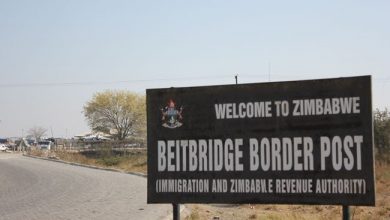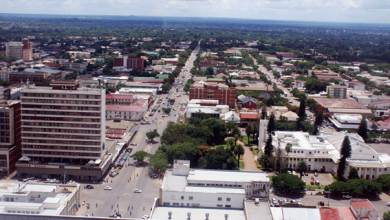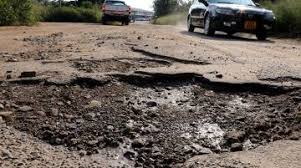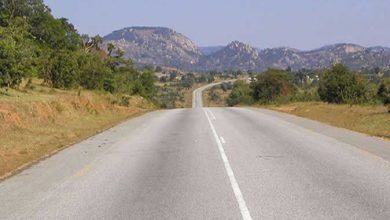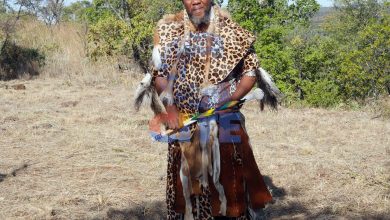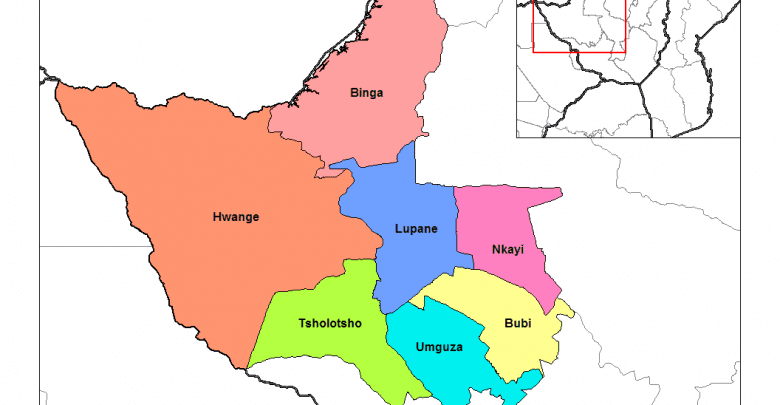
By Dumisani Nyoni
Nobuhle Siampolomba from Binga, Matabeleland North province, feels very vulnerable.
Mobile network connectivity in Nabusenga, where she lives, is but a dream and that has seen her failing to access critical health information through her mobile phone.
With the advent of new technology, people are now accessing health care information and other educational resources through social media and the internet but in marginalised areas like some parts of Binga where there is limited or no network coverage, the case is different.
In some of these areas, there is no radio or television signal.
Now, with the outbreak of the coronavirus (Covid-19), a pandemic that has killed thousands of people globally, 25-year old Siampolomba feels even more vulnerable.
“To be frank with you, we are in the dark about this Covid-19 you are talking about. Villagers here do not have adequate information on how they can protect themselves from this disease. I feel very vulnerable,” she said.
Binga is one of the tourist attraction areas in Zimbabwe and as such, it is vulnerable to Covid-19.
It prides itself as having probably some of the deepest channels of the Zambezi River; it has crocodile farm; a museum, arts and craft centre; sport fishing; hot and cold springs as well as the country’s longest natural sand beach.
World Health Organisation (WHO) defines Covid-19 as an infectious disease caused by a new coronavirus first identified in December last year. Coronaviruses are a family of viruses known to cause respiratory infections.
There is no vaccine yet to prevent Covid-19, and no specific treatment for it, other than managing the symptoms.
The global health body recently launched a messaging service with partners WhatsApp and Facebook to keep people safe from Covid-19.
But people living in marginalised areas will never have access to these services.
Zimbabwe recorded its first Covid-19 case on March 20 after a Victoria Falls resident, who recently travelled to the United Kingdom tested positive.
So far, the country has five confirmed cases and one of them has succumbed to the disease.
Zimbabwe’s capacity to handle the Covid-19 outbreak has been questioned amid fears that the country’s fragile health delivery system would be overwhelmed if cases escalate.
President Emmerson Mnangagwa recently issued a decree banning gatherings of more than 50 people to prevent the spread of the disease that has killed thousands of people across the globe.
He also ordered the closure of schools, colleges and universities on Tuesday this week.
Binga North MP Prince Dubeko Sibanda said most areas in Binga do not have network coverage and it was hard for villagers to have access to critical health information.
“Those people do not have adequate information on Covid-19 and it’s a cause for concern. What we have tried to do, together with councillors, is to go around, sensitising people about this issue. However, since the areas are far from each other and that councillors do not have cars to move around, the impact has been minimal,” he said.
He lambasted the government for failing to invest in information technology in terms of infrastructural development.
He said the Universal Services Fund (USF) that was created for that purpose was being abused.
USF was created to cater for areas regarded as unserved and underserved areas that are usually remote where the generality of the population live below the poverty datum line and as such cannot afford to pay for such services on their own.
“In fact, in Binga the areas that do not have network coverage are more than those areas that have,” he said.
Most wards in Binga Rural District Council such as Sinakoma, Sinansengwe, Siabuwa, Tyunga, Kabuba, Nabusenga, Kalungwizi and Nagangala-Sinampande either do not have network coverage at all or are partially covered.
Human Rights Watch (HRW) states that governments are responsible for providing information necessary for the protection and promotion of rights, including the right to health.
The Committee on Economic, Social and Cultural Rights regards as a core obligation providing “education and access to information concerning the main health problems in the community, including methods of preventing and controlling them.”
As such, HRW said a rights-respecting response to Covid-19 needs to ensure that accurate and up-to-date information about the virus, access to services, service disruptions, and other aspects of the response to the outbreak is readily available and accessible to all.
It recommended that all information about Covid-19 should be accessible and available in multiple languages, including for those with low or no literacy.
“This should include qualified sign language interpretation for televised announcements, as Taiwan has done; websites that are accessible to people with vision, hearing, learning, and other disabilities; and telephone-based services that have text capabilities for people who are deaf or hard of hearing,” it said.
“Communications should utilize plain language to maximize understanding. Age appropriate information should be provided to children to help them take steps to protect themselves.”
Zimbabwe’s constitution (section 29 (3)) also states that the State must take all preventive measures within the limits of the resources available to it, including education and public awareness programmes, against the spread of disease.
Binga people are not alone in this predicament.
People living in areas close to Plumtree Border Post and some parts of Tsholotsho, Nkayi and Lupane do not have network coverage.
In Mashonaland provinces, for instance, areas under chief Magonde in Makonde Province also do not have network coverage.
There are many more areas in the country that do not have mobile network connectivity.
Zimbabwe Human Rights Association (ZimRights) national director Dzikamai Bere said the government was not doing enough with regards to providing information to the marginalised groups.
“It is clear that the government has failed the people of Zimbabwe. We now as citizens have to step forward and support each other. As ZimRights, we are planning to work with our structures to disseminate information and healthy kits in the marginalised areas,” he said.
In a statement, ZimRights urged the government to provide more accurate information regarding the progression of Covid-19 in the country including comprehensive statistics of how many people have been tested, how many have been confirmed positive, how many have tested negative, and how many suspected cases have been turned away without testing.
It said the government should also provide information on the gaps in supplies and areas in need of resources to prepare the country to deal with the outbreak.
“It is clear that Covid-19 is not just a disease, but a real threat against the right to life protected by section 48 of the Constitution. In failing to prepare for this tragedy, while equipped with all information, the government remains accountable for any loss of life that will occur as a result of the poor management of the Covid 19 disaster,” reads the statement in part.
Traditional leaders in Matabeleland region also challenged officials in the health sector to create awareness about Covid-19 in rural areas, where they say many were still ignorant about the virus.
Villagers with access to mobile network connectivity said they could not afford to buy data to access information about the killer virus.
Health and Child Care minister Obadiah Moyo declined to comment and referred all the questions to his public relations officer, Donald Mujiri, who did not respond to questions sent to his WhatsApp number.
Permanent secretary in the Health ministry Agnes Mahomva said she was busy while ICT minister Jenfran Muswere, whose ministry is responsible for network services in Zimbabwe, did not pick his phone.
With the virus now having spread across the world, infecting more than 300 000 people, Siampolomba is even more agitated.
“Something needs to be done. We need to know how we can protect ourselves from this disease. Government and non-governmental organisations should help us, otherwise, we will perish due to lack of knowledge,” she said.


